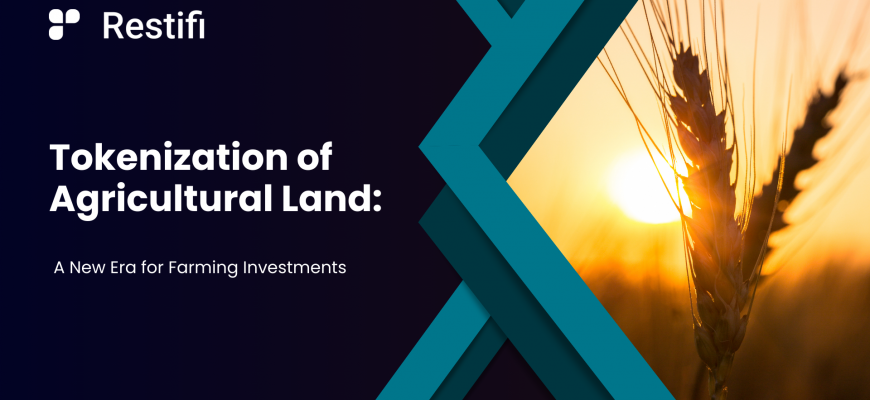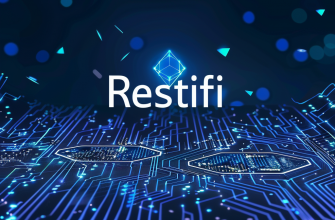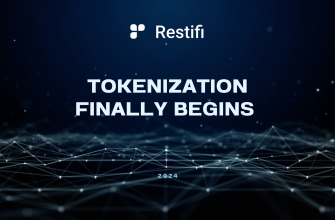- Introduction to Agricultural Land Tokenization
- The Concept Explained
- Historical Context and the Shift to Tokenization
- The Benefits of Tokenizing Agricultural Land
- Increased Accessibility for Investors
- Enhanced Liquidity of Land Assets
- Democratization of Agricultural Investment
- How Tokenization Works with Agricultural Land
- The Process of Tokenization
- The Role of Blockchain Technology
- Legal and Regulatory Considerations
- Case Studies: Successful Agricultural Land Tokenization
- Overview of Successful Projects
- Impact on Local Farming Communities
- Analysis of Return on Investments
- Challenges and Solutions in Agricultural Land Tokenization
- Addressing Regulatory Hurdles
- Ensuring Transparency and Security
- Overcoming Practical Challenges on the Ground
- Investor’s Guide to Participating in Tokenized Agricultural Land
- How to Get Started
- Evaluating Investment Opportunities
- Risk Management Strategies
- The Future of Agricultural Land Tokenization
- Emerging Trends and Predictions
- Potential Impact on Global Agriculture
- The Role of Technology in Future Developments
Introduction to Agricultural Land Tokenization
The Concept Explained
The tokenization of agricultural land, a form of asset tokenization, involves converting the value of farmland into digital tokens or farmland NFTs on a blockchain platform. These tokens represent a stake in the land, enabling fractional ownership and investment. Leveraging blockchain agriculture technology, this method makes real-world assets more accessible, divisible, and liquid for a wider range of investors. Investors can buy, sell, or trade fractions of agricultural land just like stocks or other digital assets, effectively democratizing a market once only accessible to large-scale investors or landowners.
Historical Context and the Shift to Tokenization
Historically, investing in agricultural land, an illiquid asset, has been a domain for those with substantial capital due to the high entry cost and the illiquid nature of these assets. The traditional process of buying and selling farmland, a form of farm investment, involves complex procedures, significant paperwork, and often, a long wait for returns. This alternative investment also requires knowledge and expertise in agriculture, limiting the investor pool.
The advent of blockchain technology and the concept of asset tokenization is revolutionizing the agricultural investment landscape. With the tokenization of agricultural land, the barriers to entry are significantly lowered, allowing small and individual agri investors to participate in agricultural land investment. This shift democratizes land ownership and injects much-needed agricultural funding into the sector, potentially leading to increased productivity, innovation, and sustainability in farming practices.
Tokenization is also addressing the liquidity issue associated with illiquid assets like land. Unlike physical land, tokenized real estate can be easily and quickly traded on digital platforms, providing investors with the flexibility to manage their investments in real-time. This market liquidity adds to the attractiveness of agricultural land as an investment option, potentially leading to a more dynamic and responsive agricultural investment market.
In summary, the tokenization of agricultural land is a groundbreaking development, opening up new opportunities for sustainable investment, enhancing liquidity, and paving the way for a more inclusive and sustainable farming sector. This agricultural innovation is set to transform the way we invest in and manage agricultural assets.
The Benefits of Tokenizing Agricultural Land
Increased Accessibility for Investors
Tokenization, a form of asset tokenization, significantly lowers the barrier to entry for investing in agricultural land. Traditionally, such alternative investments required substantial capital, making it unattainable for average investors. However, by breaking down land ownership into smaller, more affordable digital tokens, a diversified investment approach is possible, allowing a wider range of investors to participate. This accessibility simplifies the investment process, making it more straightforward and less intimidating for those new to real estate or agricultural investments.
Enhanced Liquidity of Land Assets
One of the most significant advantages of tokenizing agricultural land is the enhanced asset liquidity it provides. Land, by its nature, is a highly illiquid asset – selling it can be a lengthy and complex process. Tokenization changes this dynamic. By converting land value into digital tokens, these tokenized real estate assets can be bought and sold on digital platforms, much like stocks or cryptocurrencies. This transformation of illiquid assets into liquid ones allows investors to more easily enter and exit positions, providing greater flexibility and responsiveness to market changes.
Democratization of Agricultural Investment
Tokenization is a socially responsible investment strategy that democratizes agricultural investment by welcoming a diversified group of agri investors. It’s not just about making investments more affordable; it’s about making them more inclusive. Community groups, small-scale investors, and even those in the agricultural sector who previously couldn’t afford land can now have a stake in agricultural land investments. This inclusivity can lead to a more robust and resilient agricultural sector, as a broader range of stakeholders brings different perspectives and priorities to the table, potentially driving sustainable and community-focused agricultural practices.
How Tokenization Works with Agricultural Land
The Process of Tokenization
The process of tokenizing agricultural land, or creating farmland NFTs, begins with valuing the land based on market assessments and appraisals. Once the value is determined, this amount is converted into digital farm tokens, with each token representing a fraction of the land’s total value, essentially digitizing land rights. These tokens can then be issued to investors, offering them a stake in the land proportionate to the number of tokens they hold.
The process also involves creating a digital asset on blockchain agriculture infrastructure platforms. This step is crucial as it ensures that each token is uniquely identifiable and securely tracked, providing transparency and trust in the investment through clear transaction records.
The Role of Blockchain Technology
Blockchain technology, a cornerstone of blockchain agriculture, is the backbone of agricultural land tokenization. It provides a decentralized and secure ledger that records all transactions involving these tokens, offering increased transparency. This transparency is vital for investor trust and confidence, as it ensures that the tokenized land cannot be double-sold or fraudulently altered.
Blockchain’s smart contract functionality automates many aspects of the investment process, from issuance to dividend distribution and secondary market trades. This automation, a key feature of agricultural blockchain, not only reduces administrative overhead but also minimizes the potential for human error, making the investment process more efficient and reliable.
Legal and Regulatory Considerations
Legal compliance and understanding the regulatory framework are crucial in the tokenization process. Since tokenized assets are a relatively new concept, the regulatory landscape, including farm regulations, is still evolving. It’s essential for those undertaking a tokenization project to comply with existing real estate laws, securities regulations, and any specific legislation pertaining to digital assets and blockchain technology.
This compliance often involves registering the token offering with relevant financial authorities, ensuring transparency in operations, and adhering to investor protection laws. Navigating this complex legal framework and maintaining industry standards often requires the expertise of legal professionals specializing in blockchain and real estate law.
Case Studies: Successful Agricultural Land Tokenization
Overview of Successful Projects
To illustrate the potential of agricultural land tokenization, let’s examine a few successful case studies. For instance, consider ‘AgriToken’, a blockchain farms project that tokenized a large farm in Argentina. By dividing the farm into digital tokens, they raised significant capital through crowdfunding farmland to enhance farming operations and implement advanced agricultural technologies. Another example is ‘FarmShare’, which tokenized several organic farms in the United States, attracting small investors interested in sustainable agriculture.
Impact on Local Farming Communities
The tokenization of agricultural land can have profound impacts on local farming communities. In the case of ‘AgriToken’, the influx of farmer financing led to the creation of jobs and the implementation of more efficient farming techniques, boosting local economies. ‘FarmShare’ focused on supporting sustainable farming practices, leading to environmental benefits and healthier food options for local communities. These projects demonstrate how tokenization can foster community development and farmer funding for sustainable agriculture.
Analysis of Return on Investments
The financial returns from these tokenized agricultural projects have been promising. For ‘AgriToken’, agri investors saw an average annual return of around 15%, attributed to increased farm productivity and efficient management. ‘FarmShare’ offered returns through both dividends from farm profits and appreciation in the value of the tokens, averaging around 12-18% annually. These cases highlight not only the viability of agricultural land tokenization as a farm investment but also its potential to offer competitive returns compared to traditional agribusiness investment vehicles.
Challenges and Solutions in Agricultural Land Tokenization
Addressing Regulatory Hurdles
One of the primary challenges in tokenizing agricultural land is navigating the complex web of regulations that govern real estate, securities, and digital assets. Different jurisdictions have varying laws, which can complicate the tokenization process. The solution lies in ensuring legal compliance and working closely with legal experts who specialize in these areas to ensure compliance with all applicable laws. Proactively engaging with regulatory bodies can also help shape a more conducive regulatory framework for future tokenizations and aid in dispute resolution.
Ensuring Transparency and Security
Transparency and security are critical to gaining investor trust in tokenized agricultural land projects. Utilizing blockchain agriculture technology effectively addresses these concerns. Blockchain’s inherent increased transparency allows for clear tracking of token ownership records and transactions. Implementing robust cybersecurity measures and regularly auditing smart contracts can further enhance security. Clear communication with investors about these measures is essential to maintaining confidence.
Overcoming Practical Challenges on the Ground
Practical challenges such as valuation of the land, integrating tokenization with existing agricultural operations, and ensuring ongoing management post-tokenization are significant. To overcome these, it’s essential to conduct thorough land appraisals and market analysis to set realistic valuations. Forming partnerships with experienced agricultural management firms can help ensure that the day-to-day operations continue smoothly. Additionally, setting up a governance structure for token holders can aid in decision-making processes post-tokenization and foster agricultural innovation and productivity through agrarian technology.
Investor’s Guide to Participating in Tokenized Agricultural Land
How to Get Started
For those new to tokenized agricultural land investments, the first step is understanding the market. Start by researching and learning about agricultural land values, market trends, and the basics of blockchain and tokenization. The next step is to find a reliable platform that offers tokenized agricultural land investments, ensuring it is compliant with regulations and offers a secure environment for transactions. This form of farm investment can be an attractive alternative investment, especially for millennials investment seekers.
Evaluating Investment Opportunities
When evaluating tokenized agricultural land opportunities, consider factors such as the land rights, the type of farm trading practiced, and the potential for growth and yield in the agricultural finance sector. Review the project’s business plan, understand the tokenization structure, and assess how the land’s value is expected to appreciate. Also, consider the project’s impact on local communities and sustainability practices, as these can affect long-term viability and returns.
Risk Management Strategies
Investing in tokenized agricultural land, like any diversified investment, comes with risks. Diversification is a key strategy; don’t put all your funds into a single project. Instead, spread your sustainable investment across different types of agricultural projects and locations. Stay informed about market changes and regulatory developments, as these can impact the value of your millennials investment. Finally, consider working with financial advisors who understand both agricultural investments and digital assets to help guide your investment decisions.
The Future of Agricultural Land Tokenization
Emerging Trends and Predictions
The future of agricultural land tokenization is poised for significant growth and agricultural innovation. We’re likely to see an increase in the integration of advanced agrarian technology like AI and IoT with tokenized farming operations, leading to more efficient and decentralized agriculture practices. The trend towards eco-conscious investments could drive more interest in tokenized organic and sustainable farms. Additionally, we may see the emergence of cross-border agricultural land tokenization, facilitated by the global nature of blockchain technology, opening up international investment opportunities.
Potential Impact on Global Agriculture
Tokenization has the potential to revolutionize global agriculture by providing much-needed agricultural funding for development projects, especially in underfunded regions. This influx of investment could lead to advancements in agricultural technology, higher yields, and improved food security. Tokenization also offers a unique opportunity to directly connect consumers with food producers, fostering a closer relationship between the two and potentially leading to a more transparent and fair agricultural supply chain with enhanced food traceability.
The Role of Technology in Future Developments
Technology will be a driving force in the evolution of agricultural land tokenization. Blockchain agriculture will continue to provide the backbone for secure and transparent transactions. The integration of agricultural blockchain with other emerging agricultural technology like AI for data analysis and predictive modeling, drones for land surveying and monitoring, and IoT for real-time field data, will enhance the efficiency and productivity of tokenized agricultural lands. This tech-driven approach could make agriculture more appealing to a new generation of tech-savvy investors.









